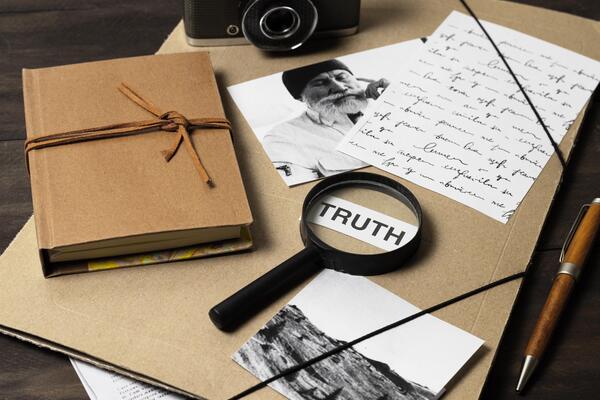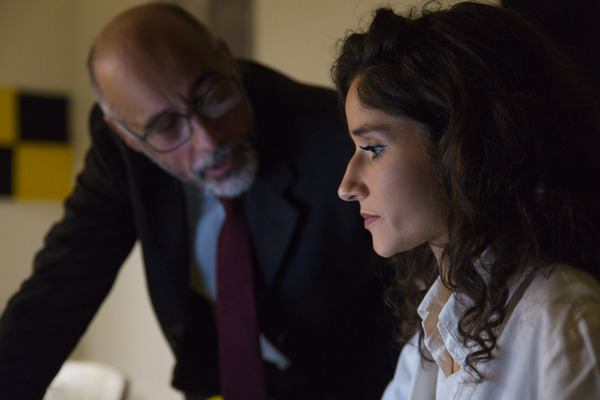What Is The Role Of Forensic Psychology In Sexual Assault?
Forensic psychology plays a pivotal role in sexual assault cases, providing crucial insights into the psychological aspects of both victims and offenders. Professionals in this field are often called upon to assess victims who may experience trauma-related conditions such as depression, anxiety, or post-traumatic stress disorder (PTSD). They also evaluate offenders to determine underlying psychological factors that may contribute to their behavior, such as a history of abuse or personality disorders.
Forensic psychologists may work closely with law enforcement and legal teams to provide expert testimony, offer psychological assessments, and recommend interventions or sentencing considerations. By understanding the motivations and emotional responses involved in such cases, these experts help ensure justice is served and appropriate support is provided for victims.
With rising awareness about the prevalence of sexual violence, the role of forensic psychologists is increasingly recognized as a cornerstone in navigating the complexities of these sensitive cases, offering a bridge between psychology and the legal system to support equitable outcomes for all parties involved.
This intricate balance highlights the critical importance of forensic psychology in addressing the nuanced dynamics of sexual assault cases, ensuring that both victims and offenders are comprehensively understood and appropriately addressed.

Forensics vs. Forensic Psychology: What’s the Difference?
Let’s address a common misconception: the difference between forensics, as often depicted in popular media, and forensic psychology. These terms, while related, represent distinct disciplines within the criminal justice system.
Forensics, commonly showcased in T.V. dramas, typically involves forensic science, which focuses on the application of scientific methods to detect and analyze evidence from crime scenes—such as DNA testing, fingerprint analysis, or ballistics. It is the science of uncovering physical evidence to support criminal investigations.
On the other hand, forensic psychology explores the intersection of psychology and the law. In a sexual assault case, for example, a forensic psychologist is not tasked with collecting or examining physical evidence from the scene. Instead, their role revolves around evaluating the mental state and behavior of individuals involved, such as victims, witnesses, or the alleged perpetrator. They may assess trauma, provide expert testimony, or aid in understanding the psychological dynamics that influence the case.
Understanding this distinction is essential, as it underscores the complementary but unique contributions each field offers to ensure justice is served comprehensively. While forensic science deals with the “what” of a crime, forensic psychology delves into the “why.”

What Might a Forensic Psychologist Do in a Sexual Assault Case?
The role of a forensic psychologist in a sexual assault case can vary widely depending on the specific needs of the case and who is requesting their expertise. These professionals are often involved at multiple stages of the legal process, offering unique insights that help inform decisions and support justice.
1. Evaluator: The Role of a Forensic Psychologist in Assessments
A forensic psychologist may be hired to evaluate either the alleged victim or the alleged perpetrator in a sexual assault case. This evaluation process is meticulous and multifaceted, involving a variety of psychological assessments and techniques to ensure an unbiased and comprehensive understanding.
Key Areas of Evaluation:
- Personality Style and Coping Mechanisms
Understanding how individuals process emotions and handle stress can shed light on their psychological state before, during, and after the alleged incident. - Emotional Reactions
Forensic psychologists assess emotional responses such as fear, anxiety, or anger to determine the psychological impact of the event. - Fabrication and Malingering
Evaluations include assessing whether the individual might be exaggerating, fabricating, or feigning symptoms for personal gain or to mislead investigators. - Intellectual Testing
Assessing cognitive abilities helps psychologists understand how intellectual factors might influence memory, decision-making, or reliability during testimony. - Memory Testing
Memory is critical in sexual assault cases, and forensic psychologists use specialized techniques to evaluate the accuracy and consistency of recall while accounting for trauma’s effects on memory.
Approach to Interviews:
- Caution and Open-Ended Questions
To avoid influencing the interviewee’s responses, forensic psychologists and law enforcement officers often employ open-ended questioning. This method encourages individuals to recount events in their own words, reducing the risk of suggestibility. - Cognitive Interviewing Technique
This widely-used method aims to enhance memory retrieval by guiding individuals to mentally revisit the context of the incident. It minimizes the risk of implanting unintended suggestions during the interview process.
Avoiding Bias:
Forensic psychologists must remain neutral and objective throughout their evaluation. This includes being vigilant against cognitive biases like:
- Halo Effect: Viewing an interviewee as entirely good or bad based on preconceived impressions.
- Confirmatory Bias: Focusing only on evidence that aligns with personal or external assumptions.
By adhering to these rigorous standards and techniques, forensic psychologists ensure their evaluations are both scientifically sound and legally admissible, playing a crucial role in uncovering the truth while safeguarding the rights of all parties involved.
2. Therapist: Supporting Emotional Recovery in Sexual Assault Cases
In sexual assault cases, a forensic psychologist or licensed professional counselor may be hired as a therapist to address the emotional reactions of those involved, whether they are the alleged victim or the accused. This therapeutic role is critical in helping individuals navigate the emotional turmoil stemming from the case.
Key Aspects of the Therapist’s Role:
- Addressing Emotional Reactions
Therapists provide a safe and supportive environment to help individuals process feelings such as fear, shame, guilt, anger, or anxiety. For alleged victims, this may involve coping with trauma or rebuilding a sense of safety. For the accused, therapy may focus on managing stress, maintaining emotional stability, and addressing the social stigma of the accusation. - Use of “Alleged”
The term “alleged” is essential to maintain objectivity, as no judgment has been made by the court at this stage. This neutrality ensures the therapist’s role is not influenced by preconceived notions of guilt or innocence. - Remaining Objective
Therapists must remain impartial and avoid being influenced by external information about the case. Their primary focus is on the emotional and psychological well-being of the individual they are supporting, irrespective of the legal outcomes.
Therapeutic Approach:
- Trauma-Informed Care
For alleged victims, a trauma-informed approach recognizes the psychological impact of the event and provides strategies to promote healing, such as grounding techniques, cognitive-behavioral therapy (CBT), or Eye Movement Desensitization and Reprocessing (EMDR). - Stress Management and Emotional Regulation
For the accused, therapy may focus on managing feelings of anger, fear, or frustration, while also helping them navigate the legal and social consequences of the accusation.
By remaining objective and focused on emotional recovery, therapists ensure that individuals involved in sexual assault cases receive the psychological support they need, independent of the case’s legal outcome. This role is crucial in promoting mental health and resilience during an exceptionally challenging time.
3. Jury Consultant: Ensuring Fairness in the Trial Process
When a sexual assault case proceeds to trial, a forensic psychologist or licensed professional counselor may serve as a jury consultant to assist in the selection of an impartial and unbiased jury. This role is crucial in upholding the fairness and integrity of the legal process.
Key Responsibilities of a Jury Consultant:
- Evaluating Potential Jurors
The consultant profiles potential jury members, considering factors such as demographic information, life experiences, and attitudes that might influence their ability to remain neutral in the case. - Ensuring Objectivity
Unlike popular portrayals, such as the TV show Dr. Bull, where jury consultants are depicted as working to sway the jury in favor of one side, ethical jury consultants in forensic psychology strive to maintain objectivity. Their goal is to help assemble a jury that can fairly evaluate the evidence without bias.
Ethical Considerations:
- Avoiding Advocacy
Ethical consultants do not seek to manipulate the jury composition to benefit one party. Instead, they focus on identifying and excluding individuals who may harbor biases or preconceived notions that could unfairly influence their judgment. - Maintaining Neutrality
Forensic psychologists working as jury consultants must adhere to strict ethical standards. Resisting any pressure to prioritize the interests of their hiring party over the fairness of the trial.
The Value of a Jury Consultant:
By using psychological expertise to evaluate potential jurors, consultants help ensure that the jury is composed of individuals capable of making decisions based solely on the evidence presented in court. This promotes a balanced and just legal process, which is particularly important in sensitive cases like sexual assault, where emotions and personal beliefs can significantly impact perceptions.
In this role, the forensic psychologist contributes to the cornerstone of the justice system—impartiality—while leveraging their skills to navigate the complexities of human behavior and decision-making.
4. Fact Witness: Providing Expert Insights in the Courtroom
In a sexual assault case, a forensic psychologist or licensed professional counselor may be called to serve as a fact witness. This role involves providing expert insights based on their professional knowledge and observations. Helping the court understand complex psychological concepts related to the case.
Key Responsibilities of a Fact Witness:
- Expert Testimony
The fact witness is officially recognized by the court as an expert in their field. They provide testimony on specialized topics, such as the psychological effects of trauma, behavioral patterns, or the validity of memory recall in high-stress situations. - Answering Important Questions
Fact witnesses respond to questions that require expertise beyond the knowledge of the average person. For example, they might explain how trauma can impact a victim’s ability to provide consistent details about an incident or assess whether certain behaviors align with common psychological profiles. - Objective Observations
Unlike advocates or attorneys, fact witnesses do not argue for one side. Their testimony is rooted in objective, evidence-based expertise designed to assist the court in reaching an informed decision.
Ethical Considerations:
- Neutrality and Impartiality
A fact witness must remain impartial, presenting facts and interpretations without bias toward the victim, the accused, or the legal teams. Their primary responsibility is to the truth, not to the party that retained their services. - Clarity and Accessibility
Forensic psychologists serving as fact witnesses are skilled at breaking down complex psychological concepts into clear, understandable language for judges, juries, and attorneys.
Importance of the Fact Witness Role:
Fact witnesses play a critical role in helping the court navigate the psychological dimensions of sexual assault cases. Their expertise ensures that decisions are informed by scientifically sound principles, bridging the gap between the complexities of human behavior and the legal system for clarity and precision.
This role reinforces the credibility and fairness of the legal process, allowing the court to explore sensitive and intricate matters with the guidance of a trusted expert.

The Importance of Objectivity in Forensic Psychology
Objectivity is the cornerstone of forensic psychology, no matter the role—evaluator, therapist, jury consultant, or fact witness. A forensic psychologist must remain impartial, avoiding biases influenced by media, internet, or personal experiences, and must never let a single piece of information shape their conclusions unfairly.
Why Objectivity Matters
Ensuring Fairness
Objectivity ensures that evaluations, testimony, and consultations are rooted in evidence, not personal beliefs, emotions, or external pressures. This is critical in maintaining the integrity of the legal process.
Protecting Credibility
A lack of objectivity can undermine the psychologist’s credibility in court, potentially harming their professional reputation and jeopardizing the case’s outcome.
Avoiding Ethical Violations
Impartiality is an ethical obligation in forensic psychology. Allowing personal biases to influence professional work could lead to accusations of misconduct.
How Forensic Psychologists Learn Objectivity
Developing objectivity is an essential component of forensic psychology training. Programs focus on helping students identify and address their biases.
- Recognizing Bias
According to Dr. Liljedahl, students often believe they are objective, but self-awareness exercises reveal otherwise. Recognizing inherent biases is the first step toward achieving neutrality. - Working Through Biases
Once biases are identified, students learn strategies to manage or mitigate them. For instance, they may receive training to consciously separate personal feelings from professional responsibilities. - Understanding Personal Limits
Students are taught to evaluate which populations they can work with objectively. For example, someone with personal trauma may find it challenging to work with sexual offenders, and acknowledging this limitation is a responsible professional choice.
Upholding Objectivity in Practice
Ongoing Self-Reflection
Forensic psychologists must regularly assess their biases and remain vigilant in their efforts to maintain neutrality.
Continuous Education
Staying informed about new research and techniques helps psychologists base their work on evolving evidence rather than outdated assumptions.
Consultation and Supervision
Engaging with peers and supervisors provides opportunities to receive feedback and adjust perspectives when necessary.
Objectivity is not innate—it is a skill that must be cultivated and consistently practiced. By recognizing their biases, addressing limitations, and adhering to ethical guidelines, forensic psychologists can ensure they remain impartial contributors to justice.

Determining Credibility in Alleged Victims and Perpetrators: A Forensic Psychologist’s Approach
Forensic psychologists play a critical role in assessing the psychological dimensions of cases, but the concept of “credibility” is not as straightforward as it may seem. Determining whether an alleged victim or perpetrator is truthful or credible involves far more than observing their demeanor during testimony.
Why Observation Alone Is Insufficient:
Behavioral Misinterpretations
People who are nervous or upset may appear dishonest despite being truthful, while those who are skilled liars may present themselves as calm and believable.
Complexities of Trauma
For alleged victims, trauma can impact memory, emotional responses, and communication style, which might be misinterpreted without a nuanced understanding.
The Role of Psychological Evaluation:
Instead of relying on subjective observations, forensic psychologists conduct thorough psychological assessments and review relevant case information. These evaluations may include:
Structured Clinical Interviews
To gather detailed personal histories, mental health status, and any psychological factors affecting testimony or behavior.
Trauma and Stress Assessments
Evaluating for signs of trauma-related conditions, such as PTSD, that could influence memory or emotional responses.
Collateral Information Review
Reviewing police reports, witness statements, and other documentation to build a comprehensive understanding of the individual’s context and behavior.
Objective Testing
Administering psychological tests to detect malingering (fabrication of symptoms) or to assess cognitive and emotional functioning.
The Limitations of “Credibility”:
Dr. Liljedahl emphasizes the challenges of assessing credibility, as the term itself can be subjective. Instead of focusing on whether someone is credible, forensic psychologists focus on gathering and analyzing information that supports an expert opinion.
- Credibility vs. Consistency
A forensic psychologist might evaluate the consistency of an individual’s statements with known psychological patterns or external evidence, but they do not claim to definitively determine truthfulness. - Expert Opinions Based on Evidence
The forensic psychologist’s role is to synthesize available information and provide expert analysis, not to label someone as credible or non-credible.
Ethical and Professional Standards:
Maintaining objectivity is critical when assessing credibility. Psychologists must:
- Avoid assumptions based on appearances or behavior.
- Base conclusions on thorough evaluations and documented evidence.
- Provide opinions that are scientifically grounded and legally defensible.
Conclusion
Forensic psychology plays a pivotal role in sexual assault cases, bridging the gap between psychology and the law to ensure justice. By offering expertise as evaluators, therapists, jury consultants, and fact witnesses, forensic psychologists provide crucial insights into the emotional, behavioral, and psychological dynamics at play. Their impartiality, adherence to ethical standards, and commitment to evidence-based practice ensure that victims and offenders are fairly represented. Understanding their role helps us appreciate the complexity of sexual assault cases and the importance of addressing these situations comprehensively and sensitively. As society continues to raise awareness about sexual violence, the contributions of forensic psychologists remain essential in promoting equitable outcomes and supporting those affected.
FAQs
What is the primary role of a forensic psychologist in a sexual assault case?
They assess psychological factors in victims and offenders to assist legal teams and ensure fair proceedings.
Do forensic psychologists determine if someone is lying in court?
No, they evaluate psychological evidence and provide expert opinions without making direct credibility judgments.
How do forensic psychologists remain unbiased in sensitive cases?
They undergo training to recognize biases, follow strict ethical standards, and focus on evidence-based practices.
Can a forensic psychologist work for both the prosecution and the defense?
Yes, they can be hired by either side but must remain impartial and focus solely on the facts.
What methods do forensic psychologists use to evaluate trauma in victims?
They use structured interviews, psychological tests, and trauma assessments to understand the emotional and cognitive effects.

